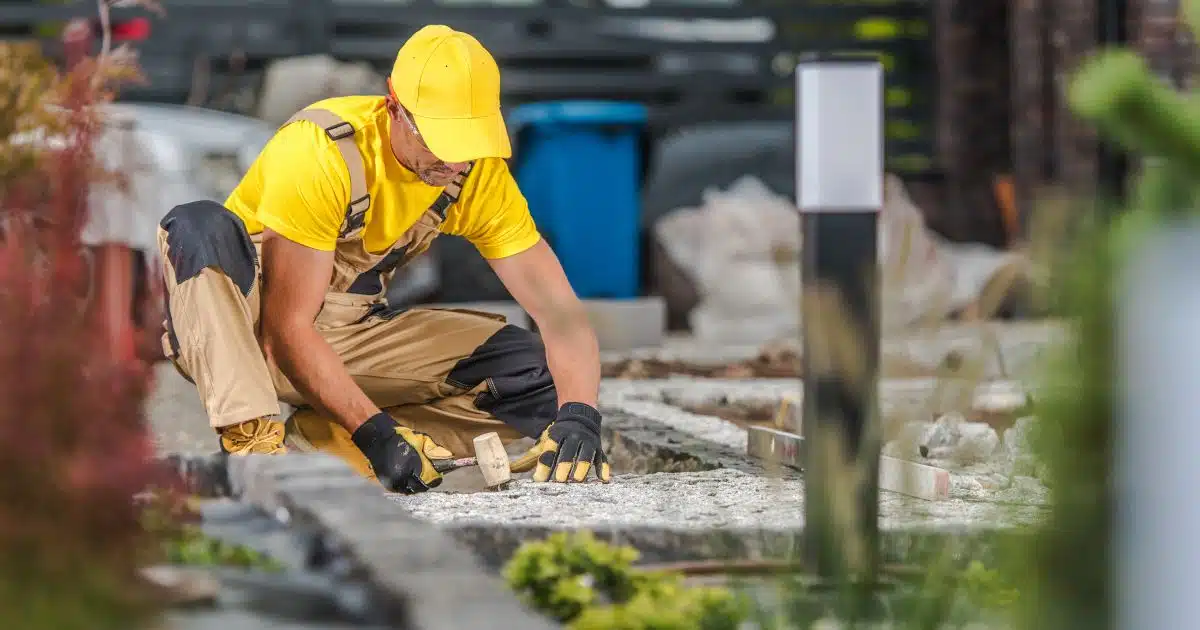Delaware law requires employers to carry Workers’ Compensation insurance. Whether you work for a small landscaping company or a large one, your employer must protect you and your coworkers with Workers’ Compensation insurance.
The purpose of Workers’ Compensation is to cover your medical costs if you suffer a work-related injury or illness. It also will pay for two-thirds of your lost wages if you miss more than three days of work. It even provides injured workers with payouts for catastrophic injuries, like an amputated finger or hand.
In return, your employer is protected against possible legal liability for any work-related injuries or illnesses that you might sustain, which helps your employer to stay in business while ensuring you can return if you choose to do so after healing and regaining your strength to work.
Independent Contractors Could Be Excluded from Workers’ Compensation
If you work in the landscaping field, you might have to be an independent contractor instead of a designated employee to obtain a job. It is better to be an employee than it is an independent contractor because employers are supposed to protect laborers with Workers’ Compensation insurance. An independent contractor generally is not eligible for Workers’ Compensation benefits, but there are exceptions to that rule.
Landscaping companies typically maintain significant control over the work duties of independent contractors. Annually filing a 1099 form on your income taxes shows you consistently perform work duties for the same business entity.
Exercising control over your work, regular pay, and filing a 1099 tax form every tax season could enable you to file for and obtain Workers’ Compensation benefits when needed.
Landscaping is Dangerous Seasonal Work
Landscaping requires working with power equipment and performing a variety of labor-intensive tasks that can be dangerous. A lawnmower, weedwhacker, or woodchipper can cause serious injuries and possibly death.
Working in the rain could cause you to slip, fall, and strike your head on a hard surface. You could suffer a serious back injury due to heavy lifting. A heavy object could fall and strike you down. There are many ways in which you could suffer an injury while performing landscaping work, including coming into contact with poisonous plants.
If you are allergic to poison oak, sumac, or ivy, your body might have an adverse reaction while performing landscaping work. Even the hot sun could cause you to suffer from heatstroke and physical exhaustion. You also have to travel from one client’s location to another. That puts you at risk of an auto accident.
Landscaping Workers Are Especially Vulnerable
Landscaping work makes you much more vulnerable to injuries than most other occupations. Landscaping includes installing and maintaining lawns, trees shrubs, and landscaping features at homes and commercial properties.
The National Safety Council (NSC) says the landscaping workers suffer many common injuries. They include:
- Amputated body parts
- Broken and fractured bones
- Concussions and other traumatic brain injuries
- Heatstroke
- Neck or back strains
The Bureau of Labor Statistics (BLS) says the fatality rate among landscapers is more than 25 per every 100,000 workers. The national average is just 3.8 fatalities per 100,000 workers across all industries.
The BLS says the most dangerous landscaping worker jobs and their average fatality rates per 100,000 workers are tree trimmers and pruners, who average nearly 180 deaths per 100,000, followed by pesticide handlers with more than 15 deaths, and groundskeeping and landscaping laborers with an average of 10.1 deaths per 100,000.
How Do Most Landscaping Fatalities Happen?
The BLS says incidents involving transportation account for the most fatalities in the landscaping industry. Workers have to travel from one location to another and obtain materials and supplies.
Vehicular accidents cause nearly 3.5 deaths per 100,000 workers. That is slightly ahead of the average of nearly three deaths due to contact with objects or equipment.
Falls from elevated positions average about two deaths per 100,000 workers, and exposure to harmful substances causes an average of 1.69 deaths. Overexertion and bodily reaction to the often hot and humid conditions also claim 1.45 lives per 100,000 workers.
Those numbers add up to a very dangerous profession in which injuries are common and deaths always are a possibility.
How to Minimize Your Risk of Injury or Illness?
Landscapers often perform a variety of tasks that require great care to prevent injuries from occurring. Cutting, pruning, and edging equipment can be very dangerous.
Wearing eye protection, steel-toed boots, and gloves can help to protect against minor injuries. Using safety guards helps to protect against serious injuries. It also helps to wear bright and highly visible clothing, such as a reflective safety vest, and long pants to protect against cuts and scrapes.
You should keep all power equipment maintained and in good working order. Sharpening various cutting edges will help to reduce the amount of force needed to do your work properly.
You also should take the time to read the safety manuals and proper operating procedures for the power tools, hand tools, and other equipment that enables you to do your job. That will help you to better understand the dangers each poses and how to use them safely.
If you do suffer an injury while landscaping, obtaining medical attention is the top priority. You will need to notify your employer as soon as possible and describe the events that led to your work injury.
If you are an employee on the company payroll, Workers’ Compensation insurance should pay for your injuries. If you are a contractor who is paid regularly and file a 1099 form with your taxes, you also should be eligible for Workers’ Compensation benefits.
The insurer might deny your claim, but an experienced work injury attorney could help to uphold your rights.
Experienced Wilmington Workers’ Compensation Lawyers at Rhoades & Morrow Help to Uphold the Rights of the Injured
The Wilmington Workers’ Compensation lawyers at Rhoades & Morrow can help you uphold your rights as an injured worker. You can call (302) 427-9500 or contact us online to schedule a free consultation at our law office in Wilmington, Delaware. We also have offices in Bear, Milford, and Lewes. We serve clients throughout the state.





